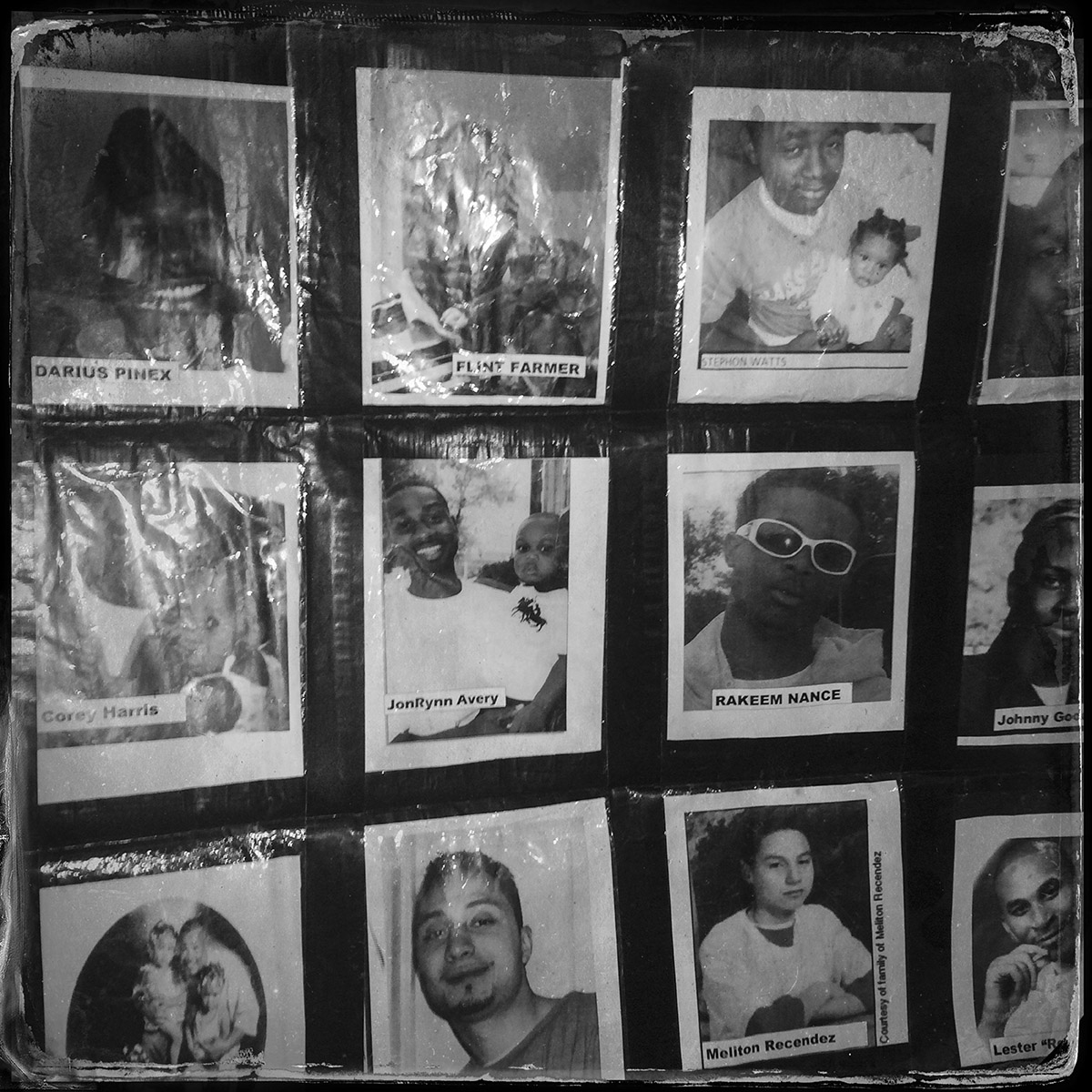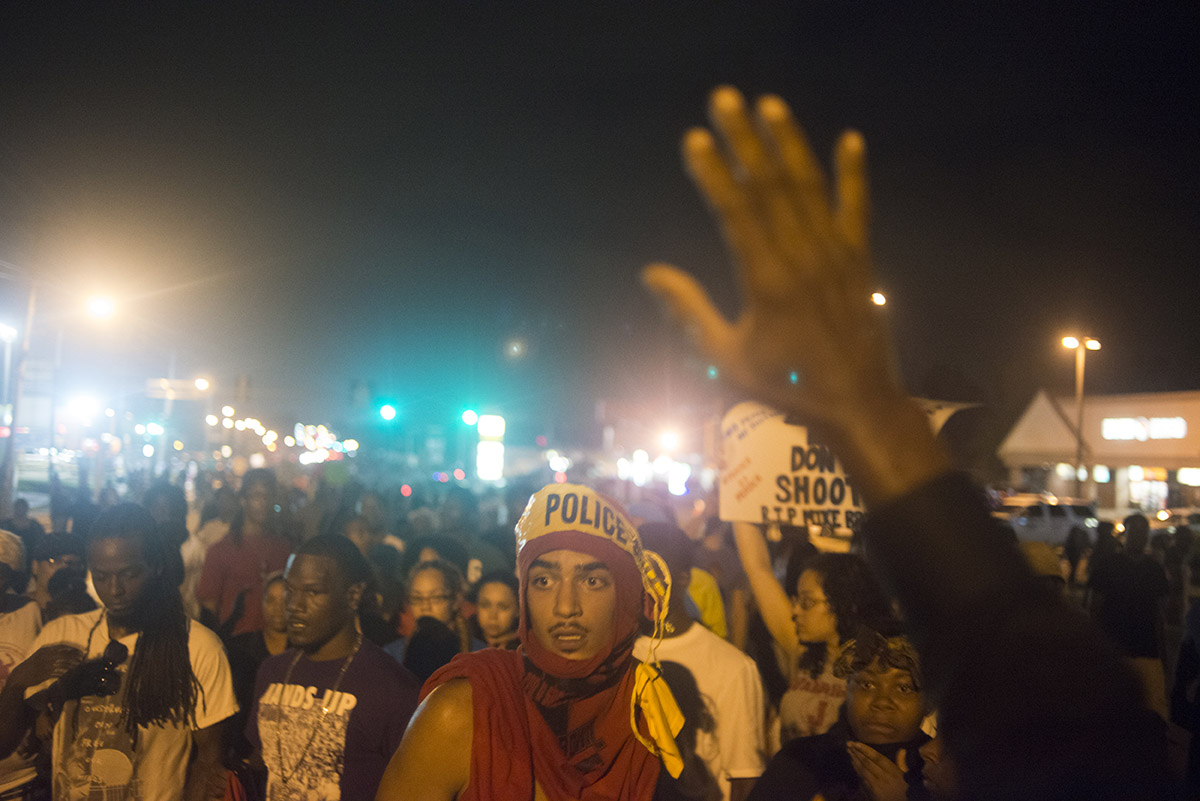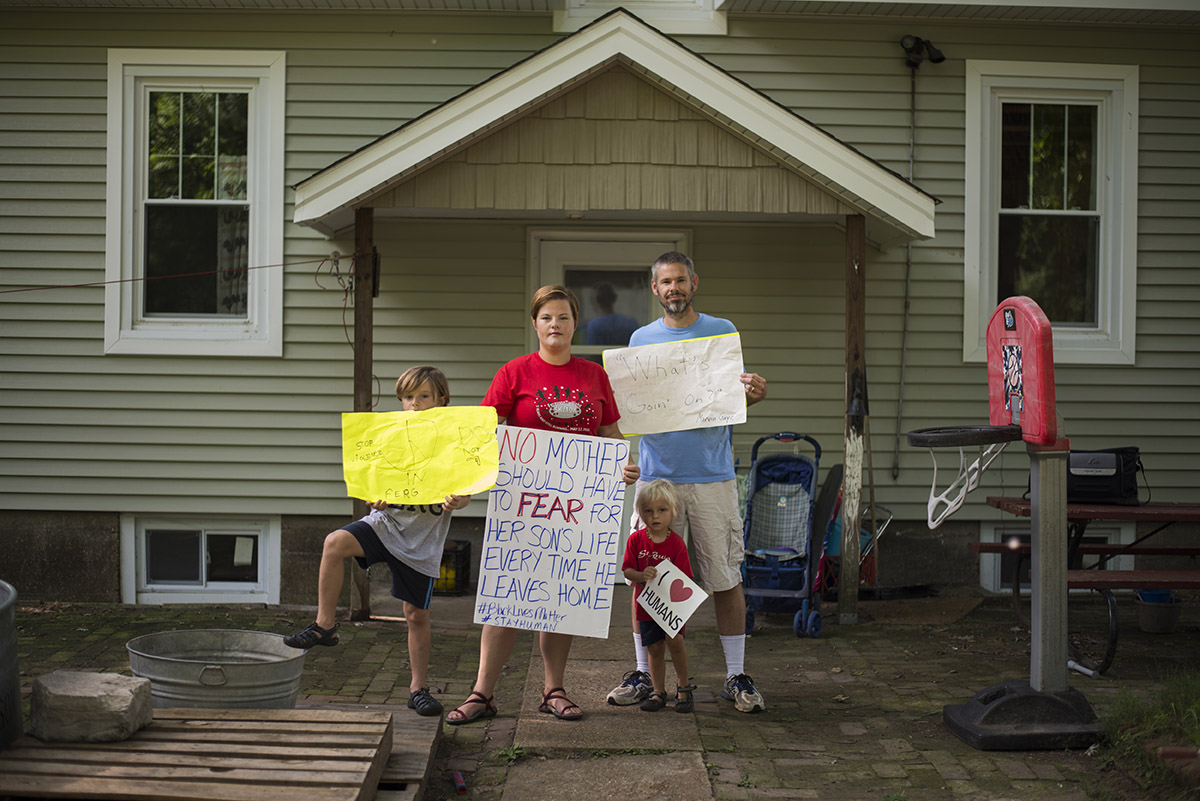Ferguson
by Jon lowenstein
On August 9, 2014 Ferguson, Missouri Police officer Darren Wilson shot and killed the unarmed 18 year old Michael Brown. This led to two weeks of civil unrest in the small Mid-Western town as protestors rose up to protest the killing. The protests continued for more than three months until a Grand Jury refused to bring charges against the officer in late November. Following the no indictment decision protestors again rose up both peacefully and violently with a result of burning at least 21 businesses in the communities in and around Ferguson. Ferguson has become synonymous with police brutality and the chant ‘Hands Up! Don’t Shoot!’ that protestors faced down military clad police man in the days following Brown’s killing.
USA, St. Louis, August 2014, A protestor marches to advocate for an indictment of Ferguson Police Officer Darren Wilson and justice for slain teen Michael Brown.
Trayvon Martin, Tamir Rice, Eric Garner and Mike Brown. These are the names we know but there are countless others whose names go unspoken and unheard.
In the United States a black man is killed every 28 hours at the hands of police. Offending police officers are almost never indicted and even more rarely convicted of any of these killings. The protesters above all are calling for more police accountability. While black men are 21 times more likely than white men to be killed by police, Latinos are also killed by police at high rates.
This is America. It’s the America that we deny, that we push to forgotten and left-behind places. The America of Stop and Frisk and Link Cards, of minimum wage jobs and foot-on-the-neck policing. We don’t like to see it, but every so often this ‘other’ America wakes up, says enough is enough and demands to be seen.
For that is what we all want – to be seen, recognized and respected.
That’s what happened the day Michael Brown was killed and left in the middle of that street for four and a half hours in his working class neighborhood in Ferguson, Missouri. The young men and women of the Canfield Green apartments stood up and would not take it.
The ensuing response was brutal and real.
People may not want to hear it, but few people would know Mike Brown’s name today if not for the willingness of young black men and women to put their bodies on the line and resist the overtly militaristic response by the Ferguson Police Department. For years the Ferguson police department and the criminal justice system had abused and profited from the community’s poorest and most vulnerable citizens.
The decision of the Michael Brown Grand Jury and the subsequent no indictment decision in the Eric Garner killing case at the hands of New York Police offices has laid bare deep racial divides that still exist in the United States and shown many outside the black community what type of actual discrimination still exists in the US.
USA, Ferguson, 17 August 2014, Thousands of people demonstrated in support of Mike Brown. They were met with a cascade of tear gas, flash bombs, rubber bullets and other methods used by police to disperse the crowd. Chaos ensued as protestors continued to fight the onward movement of the armored assault vehicles that moved toward them.
The gap between rich and poor continues to grow and the folks who are left behind are crystal clear about where they stand. They know the sting of systemic racism and the deprivation of extreme inequality. I admire the protestors’ fight for dignity and respect in the face of these obstacles.
Witnessing the events in the aftermath of the Michael Brown killing in Ferguson was a painful and difficult, but deeply necessary, experience. Although W.EB. Dubois wrote that the problem of the twentieth century is the problem of the color line, the issue of race and equality continues to be the ultimate challenge of our time.











